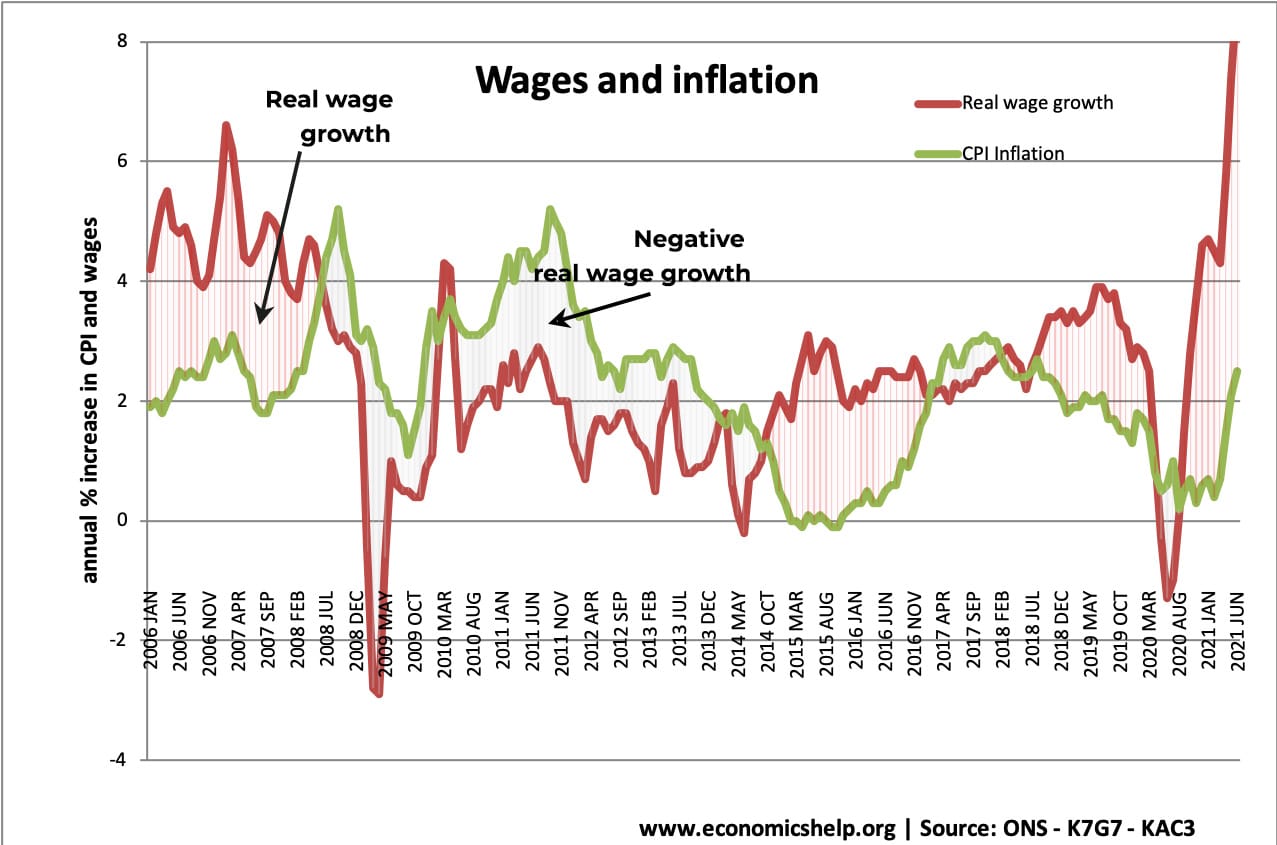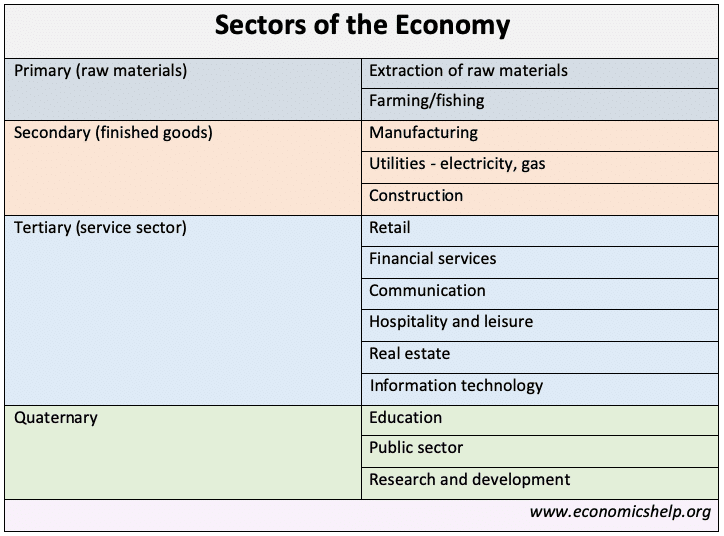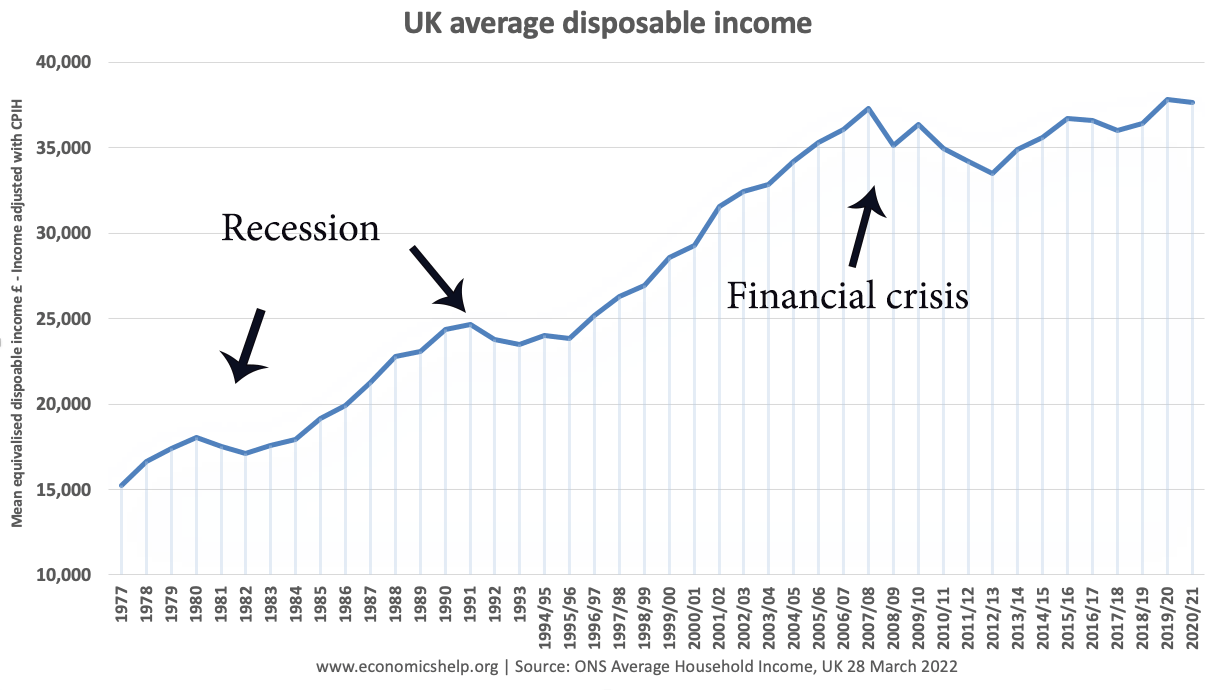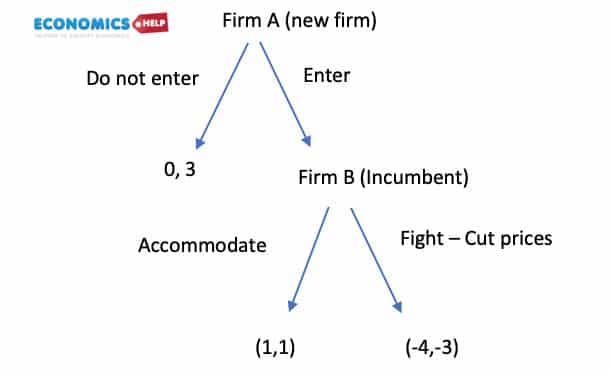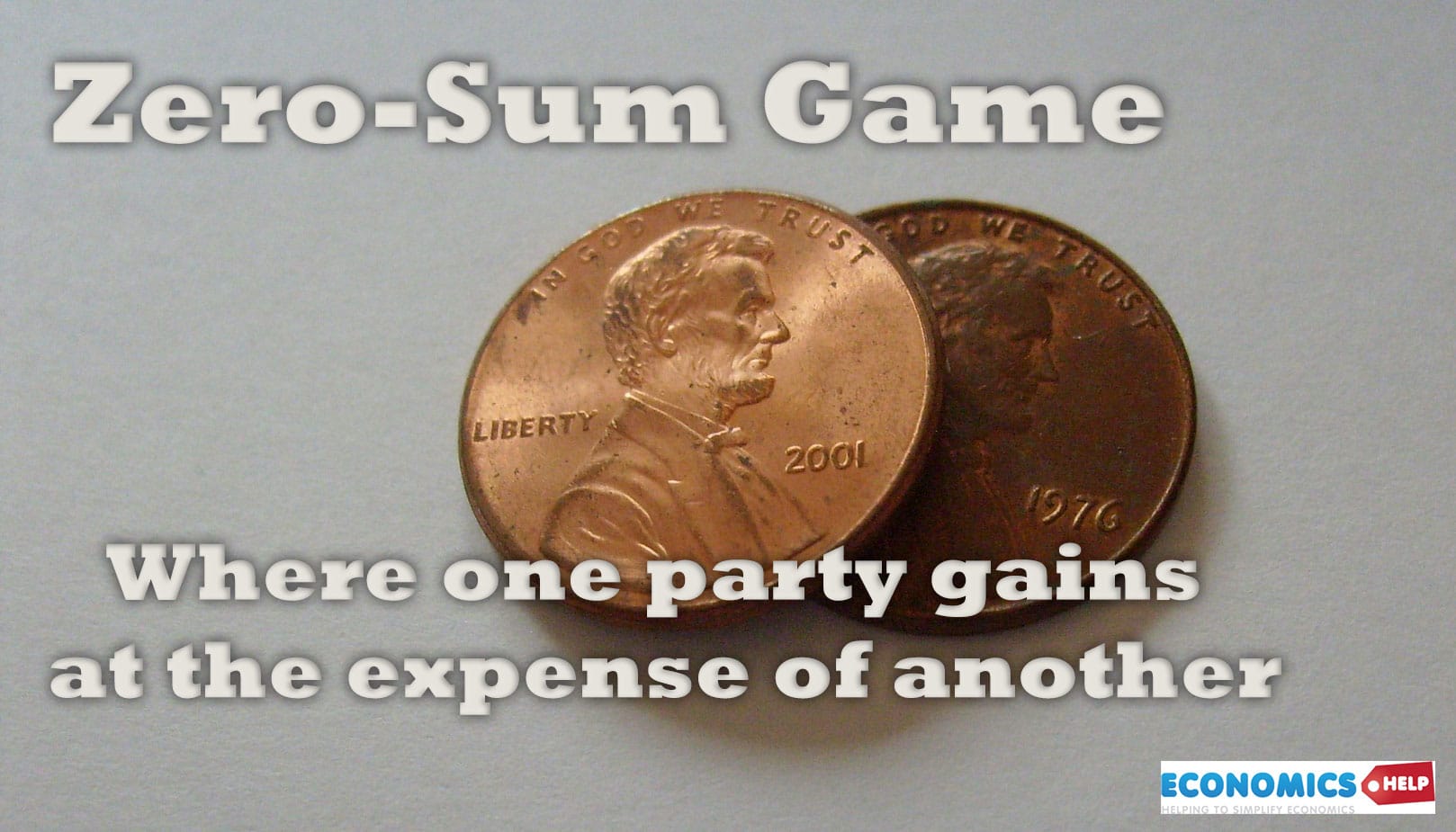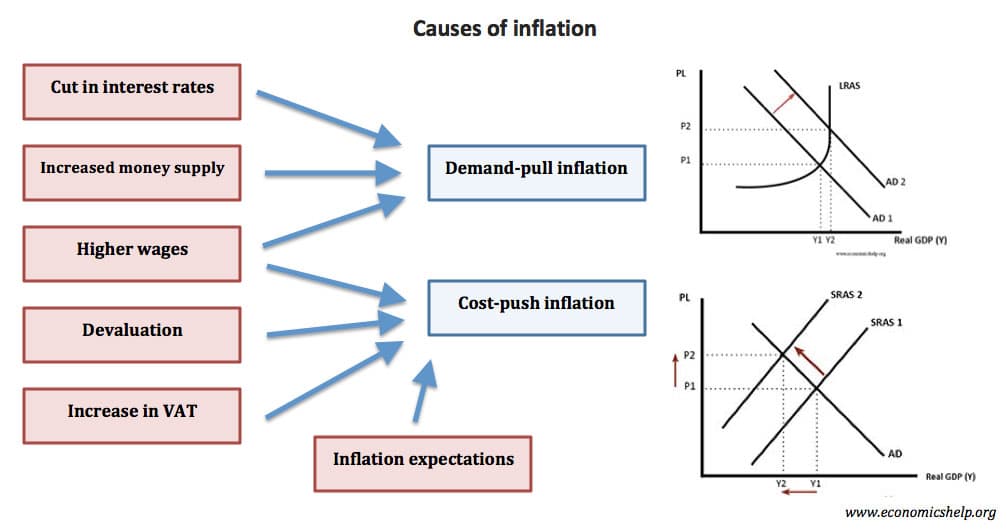Impact of Wage Inflation
Summary: Wage inflation is an increase in nominal wages, meaning workers receive higher pay. Wage inflation tends to cause price inflation and higher growth. The impact of wage inflation depends on whether it is a real increase (higher than inflation) or just nominal increase (same wage increase as inflation). The effect also depends on labour …

